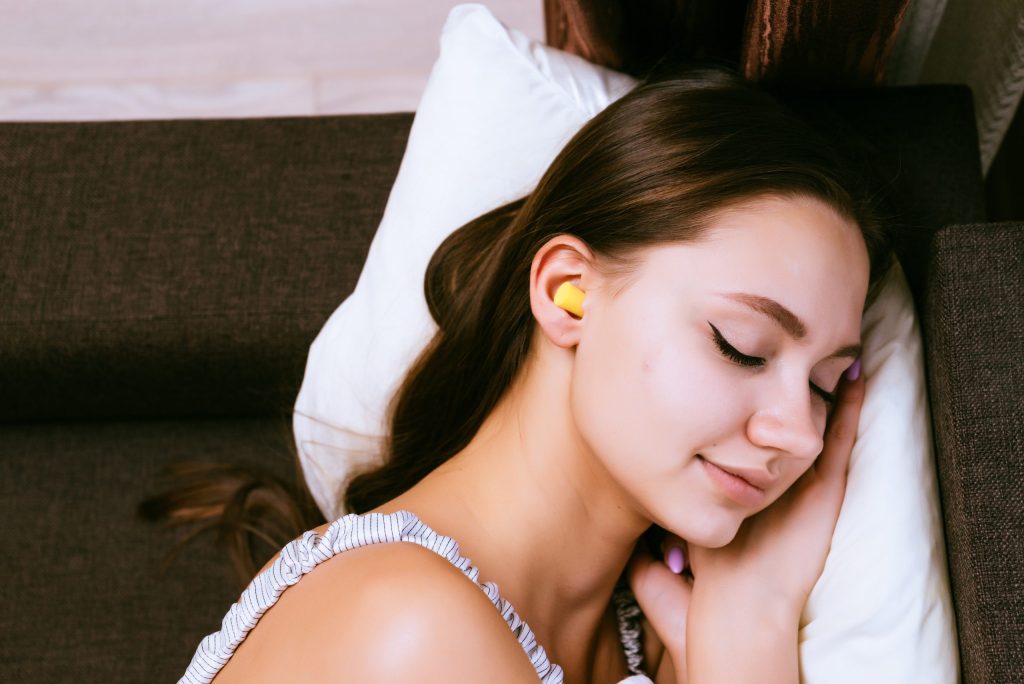Earplugs are useful for everyone, whether you’re a musician, a night owl or just someone who likes peace and quiet, to protect your ears. Even so, many worry that using earplugs might have negative effects on hearing. This article looks into both the advantages and disadvantages of wearing earplugs to help you decide what’s best for your ears.
Ear Plugs
What Are Ear Plugs?
Earplugs are small tools that go into the ear canal to shield against sound. You can find them as foam, silicone or custom-molded and each has its own level of sound reduction. They mainly exist to shield your ears from sounds that might harm your hearing over the years.
Why Should You Use Ear Plugs?
Many people need to use ear protection. Going to concerts and sporting events or spending time in loud workplaces, can damage your hearing. Listening to loud sounds for a long time can cause hearing loss, so earplugs are very important to protect your ears.

Possible Problems with Ear Plugs
Using it Wrongly
A frequent problem with earplugs is that people often use them incorrectly. If you place the plug wrong, it may cause discomfort, irritation or ear infections. If you put your earplugs in too far, they might touch your eardrum and cause you some discomfort or a minor injury. Be sure to read the instructions that come with your earplugs so you use them correctly.
A Buildup of Earwax Can Occur
Earwax can also become a problem. If you use earplugs, they can prevent earwax from coming out which can result in a blockage. With time, this situation can result in hearing problems, discomfort and infections. Frequent cleaning of your ears and earplugs can help to reduce this problem.
Changes in Hearing That Are Not Permanent
Earplugs are meant to cut down on noise, but they may occasionally cause your hearing to change for a short time. If you wear earplugs, you may not hear low-volume noises and your hearing experience might change. Most of the time, these changes go away when you take out the earplugs.
Advantages of Using Ear Plugs
Ways to Prevent Hearing Loss
Wearing earplugs helps to prevent hearing loss. Using earplugs lessens the impact of loud noises which helps protect the delicate parts of your ears and saves your hearing.
Cutting Back on Stress and Getting Better Sleep
As well as helping your ears, earplugs can ease your stress and help you sleep better. If you can block out disturbing sounds, your sleep will be more peaceful and help you stay healthier.
Staying Focused
Earplugs can help workers in noisy places to stay more focused and get more done. Because they suppress unwanted sounds, people are able to focus more on their duties and achieve better results.

Selecting the Right Ear Plugs
Kinds of Ear Plugs
Difficulties with noise can be handled by using earplugs that are tailored to your needs.
Foam Earplugs: Using foam earplugs is easy and they are affordable, so you can throw them away after each use. They help lower noise, but they might not suit everyone’s needs.
Silicone Earplugs: They are reusable, more comfortable than foam and a good choice for daily use. They can be shaped to match the shape of your ear canal.
Customized Earplugs: These earplugs are individually made to match your ear shape and give the best protection and comfort. They are costlier, but they give better protection and comfort.
How the Earplugs Should Feel
The right fit is important for earplugs to be effective and comfortable. If your earplugs don’t fit right, they can be uncomfortable and not block out much noise. You should try a variety of brands and types to discover which ones fit and feel comfortable for a full day.
Tips for Using Ear Plugs
How to Insert
Put earplugs in the right way to get the best results. Before using foam earplugs, shape them into a small cylinder and then put them into your ear. To use silicone or custom-molded earplugs, push them softly into your ear and let them expand to their proper shape.
Keeping the Place Clean
To keep your earplugs effective and clean, it’s important to maintain them regularly. Discard foam earplugs after using them and clean silicone and custom earplugs on a regular basis. If you have an ear infection or blockage, don’t use earplugs since it may make the problem worse.
Paying Attention to Your Body
Notice how your ears feel as you wear earplugs. If you notice any discomfort, pain or changes in your hearing, take out the earplugs and adjust them or change their type. You should also remember to give your ears a break from earplugs every now and then.
Earplugs are a good way to stop loud noises from damaging your hearing. When you wear it safely, they are safe for your ears and can help you relax and work more efficiently. Even so, you should use them correctly and pick the right kind to prevent things like earwax blockage or discomfort.
Knowing the advantages and disadvantages of earplugs allows you to decide how to use them and look after your hearing. It’s always better to protect your ears than to treat them after they’re damaged. That’s why, whether you’re at a rock concert or just need a peaceful night, you should consider using earplugs to protect your hearing.
